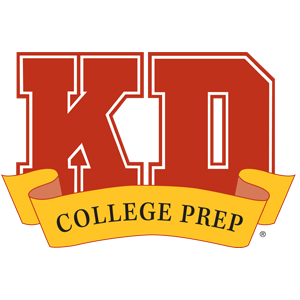Interested in having a blast with your friends while boosting your college acceptance chances at the same time? Extracurricular activities can allow you to do exactly that. You can enjoy pursuing your own unique interests while also preparing to apply to colleges. When choosing and participating in extracurriculars, follow these basic tips:
- Start early (7th or 8th grade so you can explore what’s out there)
- Sustain long-term commitments
- Follow your passions
- Keep a written record of what you do and when (it’ll come in handy when you’re ready to fill out applications and college resume)
With those tips in mind, check out the following 160 extracurriculars to try in high school!
The Ultimate List: 160 High School Extracurricular Activities
Music
Music is one of the most popular types of extracurricular activities, as there’s something for every taste. Whether you’re into classical music or K-pop, you can find or form a club to suit your musical interests.
1. A Capella
2. Choir
3. Drumline
4. Guitar Club
5. Jazz Band
6. Mariachi Club
7. Marching Band
8. Music Composition Club
9. Music Production Club
10. Musical Theater
11. Orchestra
12. Percussion Ensemble
13. Pep Band
14. Piano Club
15. Show Choir
16. String Ensemble
17. Summer Music Camp
18. Youth Ensemble
Sports
Sports extracurriculars offer great opportunities to demonstrate leadership ability. For example, as you progress throughout high school, you may have opportunities to serve as captain of a team.
19. Baseball
20. Basketball
21. Cheer
22. Cross-country
23. Field Hockey
24. Football
25. Golf
26. Lacrosse
27. Soccer
28. Softball
29. Swimming / Diving
30. Tennis
31. Track & Field
32. Volleyball
33. Weightlifting
34. Wrestling
Not all schools offer a wide variety of sports. If you attend a smaller high school and are looking to expand your options, look for recreational and competitive leagues in your community. Instead of limiting your options to school sports, for example, you might be able to participate in any of the following:
35. Archery
36. Bowling
37. Clay Target League
38. Crew/Rowing
39. Cycling
40. Dance Team
41. Disc Golf
42. Dodgeball
43. Fencing
44. Figure Skating
45. Flag Football
46. Gymnastics
47. Hockey
48. Horseback Riding
49. Kickball
50. Martial Arts
51. Pickleball
52. Ping Pong
53. Rock Climbing
54. Roller / Inline Skating
55. Rugby
56. Sailing
57. Skiing / Snowboarding
58. Surfing
59. Ultimate Frisbee
60. Water Polo
Social Sciences
Social science clubs and activities offer leadership opportunities through an academic lens. These can be great options for students who are interested in taking an active role in school administration (Student Council), developing public speaking skills (Speech and Debate), or thinking about pursuing a career as a lawyer (Mock Trial).
61. Amnesty International
62. Mock Trial
63. Model UN
64. Philosophy Club
65. Quizbowl
66. Speech and Debate
67. Student Council
Community Service
Every high school student should participate in community service activities. Not only is it important for your college application, but it’s also a great way to start building a network within your community. You’ll be able to meet new people while making a difference.
68. AVID Club
69. DoSomething
70. Habitat for Humanity
71. Kids Helping Kids
72. Leo Club
73. Red Cross Club
74. Sisters on the Runway
75. UNICEF
76. Volunteer Fire Department
Religion/Diversity/Inclusion
Some students may enjoy connecting with other high schoolers who share their faith or their ethnic/racial background. There are plenty of opportunities for connecting to others and learning more about your heritage.
77. African American Student Alliance
78. Asian Student Union
79. Bible Studies
80. Black Student Union
81. Cru
82. Fellowship of Christian Athletes
83. Gay-Straight Alliance
84. Jewish Student Union
85. Muslim Students Association
86. Telugu Student Union
Hobbies
Any special interest you enjoy counts as a hobby, whether it’s arts and crafts or board games. If you enjoy a hobby outside of school that isn’t available as a school club or activity, consider approaching your school’s administration about establishing your own special interest club.
87. Anime Club
88. Baking Club
89. Book Club
90. Chess Club
91. Crochet Club
92. Dungeons & Dragons Club
93. Film Club
94. Geocaching Club
95. Hiking Club
96. K-Pop Club
97. Magic Club
98. Poker Club
99. Table Top Club
Language/Culture
Did you know that bilingualism is great for your brain? Research shows that speaking two or more languages strengthens your brain’s executive functioning skills, improves your ability to multitask, and enhances academic performance in math and reading. Later in life, bilingualism can even delay the onset of Alzheimer’s symptoms. If your school offers language and cultural clubs, take advantage of the opportunity to boost your brain power and your college resume at the same time.
100. ASL Club
101. Chinese Club
102. French Club
103. International Food Club
104. Japanese Language and Culture Club
105. Korean Culture
106. National Spanish Honor Society
107. Study Abroad (Ex. FLEX Abroad)
108. World Language Club
Writing/Communication
If you’re passionate about the written word, you can likely find extracurricular activities that align with your interests. The more you practice your writing skills, the better you’re likely to become. Some opportunities for flexing your language muscles include:
109. Newspaper
110. Poetry Society
111. Quill and Scroll Honor Society
112. Yearbook
113. Young Writers Association
Career Interests
Even if you aren’t sure exactly where your career interests lie, checking out some career-related extracurriculars could be helpful. It can give you a chance to explore different fields and see what might interest you.
114. Apprenticeship Programs
115. Association of Future Educators
116. Business Professionals of America
117. DECA
118. Future Business Leaders of America
119. Future Farmers of America
120. HOSA – Future Health Professionals
121. JROTC (Junior Reserve Officers’ Training Corps)
122. National Beta Club
123. National Business Honors Society
124. SkillsUSA
125. Technology Student Association
126. Youth Investors Society
Fine and Performing Arts
The fine and performing arts can be a great choice for your extracurriculars. Participating in these types of activities can help you work on your critical thinking and communication skills, as well as your creativity and socioemotional skills. They can even help you build greater self-confidence as you push past your comfort zone to try new things, like acting on a stage or displaying your artwork in a school show.
127. Community Theater Productions
128. Dance Club
129. Drama Club
130. Fashion Design
131. Film Production Club
132. Improv/Stand-up Comedy
133. International Thespian Society
134. Interpretive Dance
135. National Art Honor Society
136. School Theater Productions
137. Slam Poetry Club
Leadership and Community Groups
No matter where you envision yourself after high school, leadership skills and a history of community involvement can benefit both your professional and your personal growth. Some opportunities to get involved include:
138. Key Club
139. Local Government Youth Leadership
140. National Beta Club
141. National Honor Society
142. Peer Mediation
143. Rotary Interact
144. Student Council
145. Students Against Destructive Decisions (or other advocacy groups)
146. Toastmasters Youth Leadership
STEM (Science, Technology, Engineering, and Math)
Love geeking out about quantum physics? Envisioning yourself coding the next big app? A STEM-related club could be right up your alley. From the Crime Scene Investigators Club to Computer Science Club and beyond, there are plenty of choices to consider.
147. Academic Decathlon
148. Aerospace Club
149. Astronomy Club
150. Computer Science Club
151. Crime Scene Investigators Club
152. Digital Video / Audiovisual Club
153. Girls in STEM
154. Girls Who Code
155. Hackathon
156. Math Olympiad
157. Math Team
158. Physics Club
159. Rocket Club
160. Science Olympiad
How do I choose the right extracurricular activities?
Participating in extracurriculars may be the most fun part of the college readiness process—that is, if you truly enjoy the ones you’ve picked. There’s no sense in choosing extracurriculars based on what you think colleges will look for if you don’t actually enjoy what you’re doing. Admissions officers generally appreciate the broad spectrum of human interests; whether you love rock climbing or ornithology, it’s the act of participating in something that matters, not necessarily which activity you’ve chosen. Follow your passion.
What will matter to colleges is the demonstration of long-term commitment. During 7th, 8th, and perhaps even 9th grade, it’s not uncommon for students to try out a bunch of different activities in order to find the ones that best suit them. Starting in 9th and 10th grade, however, you’ll want to narrow down your interests to the extracurriculars that you’ll continue participating in throughout the rest of your high school years.
If you’re not quite sure where to begin, you can talk to the college counselors at KD College Prep. Our team can help you select your extracurriculars and build an activity list for your college applications.
How important are extracurricular activities in the college admissions process?
There are many factors that college admissions officers consider when deciding which applicants to admit. While extracurriculars are not the most significant factor, they are definitely an important one.
Consider two fictitious applicants, Julia and Hunter. They both have a GPA of 3.9, and both have earned A grades in a couple of AP courses. Julia has been on the swim team and French club for four years, while Hunter only participated in band for a semester before dropping out of it. If the college only has space for either Julia or Hunter, the acceptance letter is generally more likely to go to Julia.
Similarly, an academically sound student who has no record of community involvement might give an admissions committee second thoughts. That same committee might be willing to take a chance on a student who earned good but not spectacular grades if that student can demonstrate a longstanding commitment to community service and other extracurriculars.
In short, extracurricular participation can give you a competitive edge. They demonstrate that you’re willing to do more than the bare minimum.
How can extracurriculars help you stand out to admission officers?
Extracurriculars can be a great way to have fun with your friends and blow off steam after class, but they’re also a way to differentiate you from every other college applicant. Colleges like to admit students who have demonstrated that they have pursued interests outside of class, who are passionate about things, and who have shown they can sustain a long-term commitment to something.
Colleges also appreciate students who participate in extracurriculars because these activities can help you build essential soft skills, such as:
- Leadership
- Communication
- Teamwork
- Self-discipline
- Socio-emotional skills
In addition to helping you stand out to admissions officers, extracurriculars can also help you become eligible to apply to certain scholarships, such as sports-related, career-focused, or special interest scholarships.
Is 11th grade too late to get involved in extracurriculars?
It’s ideal to begin participating in extracurriculars as early as possible. Colleges do like to see that students can sustain a long-term commitment. However, if you’re in 11th grade and you’d like to step up your college readiness activities, joining a couple of clubs or teams now is better than not doing it at all. Besides, it’s a great way to meet new friends and explore interests.
Do colleges verify your extracurriculars?
Some schools do indeed verify applicants’ extracurriculars. Even if college admissions officers do not have time to verify every extracurricular listed by every applicant, they may fact-check random batches of applications.
The internet makes it easier than ever for admissions teams to quickly check one or two key items on an application. For example, if an applicant claims to have won an award for fencing in a particular year, but another student’s name shows up on a Google search, then that applicant will almost certainly be denied admission. Fabrication is just not worth it.
Do hobbies and ongoing commitments outside of school count as extracurriculars?
Not all high schools have the resources to offer a robust menu of extracurriculars. College admissions teams understand this, and they also understand that many students have unique interests unlikely to be completely fulfilled even by a full calendar of school activities. Hobbies, community groups, and other ongoing commitments outside of school do indeed count as extracurriculars.
What clubs do Ivy League colleges look for?
It’s often thought that Ivy League colleges look for well-rounded applicants who have participated in everything from competitive sports to musical groups to academic clubs and beyond.
In fact, what they’re really looking for are applicants who pursue their passions by participating in activities that align with their interests. This demonstrates that the applicants are committed to learning and growing. Top-tier schools look for a pattern of activities that demonstrates attributes such as commitment, leadership, passion, initiative, love of learning, community involvement, and dedication.
Need help preparing for college?
You can find help with everything from college admissions test prep to selecting colleges and even choosing high school classes at KD College Prep. Since 1992, we’ve helped more than 85,000 students successfully prepare for college. Get started today with a free consultation.














































